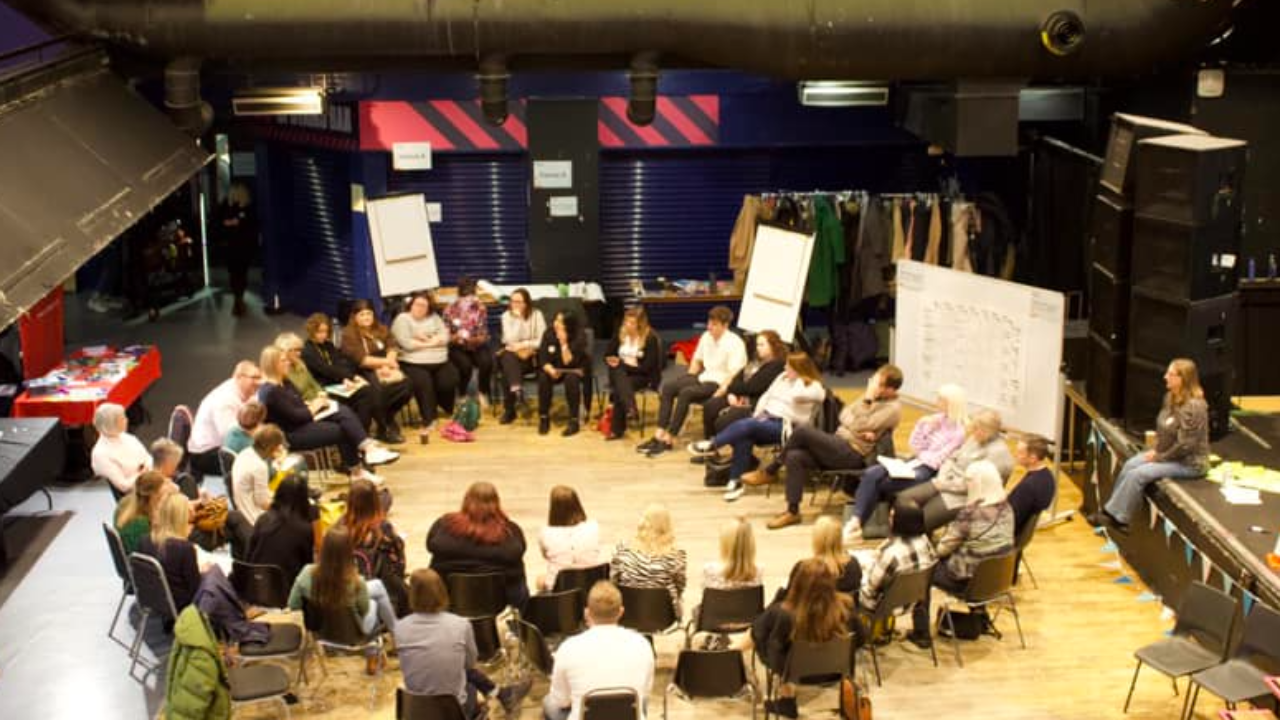
3 ways to use behavioural science from #commscamp
Nov 02, 2023"We care - we do this work because we want to help people."
This sentiment was echoed in every session at #commscampscotland. This packed unconference brought together comms pros committed to making a real difference while navigating significant work challenges.
Here are my three insights with a behavioural science twist.
One: Leveraging Reciprocity Bias to Reach Seldom Heard People
One recommendation that stood out in this session was the importance of engaging influencers, such as neighbours and friends, to reach the intended audience. To place them as the messenger. But not just that. To ask them to share the message.
For me this then underscores the much underused tactic of shareable assets.
Yes, we develop assets for partners - but this doesn't mean that they are shareable or that 'sharing' is a measurable objective. Can we step it up?
Consider...
- How do we ask and is the ask timebound?
- Do we emphasise the effort invested - not in the campaign but in the offer.
- Can we lead with what how we (you/your org) have worked hard to develop the service - the hours, love and toil!
This could trigger what behavioural science calls the Reciprocity Bias (and Perceived Effort Bias). It is in our culture to repay a favour.
- Some-one buy you a beer? You will want to get next the round.
- Friend remember your birthday? You will want to remember your friends birthday too.
So if you demonstrate how you are helping people and ask people to help you - they may just do it - with a smile.
Not only because it feels good to help, but because you have done something for them, for their community and they want to reciprocate.
But don't forget to ask.
Life's too busy to 'imply' or to hope.
Two: The Role of the Listener in Internal Communications
Nafisa Ali Shafiq ran a fantastic session on internal communications. Conversations swayed from the importance of data to the importance of people first.
For me, I heard the word 'bias' - without hearing the word 'bias'. It was agreed Leadership should be talking with, and listening to their people, but with that comes the acknowledgment of their 'filters' or the 'biases' we all fall prey to.
We all process information through a filter and Leadership are no different. That's why the combination of the people listening plus the data is so important.
We've all been there when the boss hears one thing and suddenly one piece of insight is trumping all others and they're off down the road with that one piece.
One solution discussed was framing the findings with their limitations, so that people have the space to explore them and to triangulate with other data.
Three: Make it Easy - the Key to Change Communications & Behaviour Change Marketing
I nervously pitched the behavioural science session. How and what do you cover with such a broad and deep subject - we could be there all day!
In the end we discussed the role of the context, cognitive biases, where the science fits inside our professional processes and explored briefly the behavioural science framework E.A.S.T (see links at the end.)
But what I took away was one word.
Easy.
This word not only came up in the behavioural science session it came up throughout the day.
- "How can we make the change easy?"
- "How can we make the words easy to understand?"
- "How can we make the ask simple?"
Comms Pro's had been talking like behavioural scientists all day because when you are driven by impact and not vanity metric, when your role is to make a difference in people's lives you know instinctively it needs to be easy.
Behavioural science is simply your HOW.
It's not about adding to your to-do list.
It's HOW you do your to-do list.
And the first step is understanding your audience!
Behavioural Science training for change communications
How you can get started with us for free:
- Podcast: You can learn more at Behaviour Change Marketing Bootcamp podcast available on all your favourite platforms. To hear more about how behavioural
- Weekly tips via email: Sign up to our weekly newsletter Brainfuel - fuel for busy communicator's!
Training
- Bootcamp Lives - are where people come together from across the country to learn the basics in one-day. It is jam-packed fun session with onward learning via masterclasses free! We have a saying - 'once you're in - you're in.' All masterclasses are exclusive to Bootcampers.
🧠 The last Bootcamp Live this year is on 13th December 2023.
- Bootcamp Team - a team effort to nail a challenge, get on the same page, plan the campaign, accelerate decisions by weeks! Plus the same exclusive entry to masterclasses. Free Team training for 2024 & 2025 ....onwards!
🧠Book a call to chat through your needs
5 star feedback ⭐⭐⭐⭐⭐
"Thank you to Ruth for an excellent introduction to behavioural science. You made it understandable and feel doable, all while keeping everyone's enthusiasm going. Knowing there is more information and a community to tap into post-bootcamp is a real bonus. It gives me confidence to continue learning and benefiting from others' experience and ideas. Brilliant."
Kelly Quigley-Hicks, Comms Pro!
"Looking forward to putting the learning to use and sharing with colleagues. I really enjoyed the practical sessions to help cement my understanding of the theory. Thank you Ruth!
Emma, Comms Pro!
Resource Links:
New to behavioural science? Check out:
E47 What is behavioural science? 3 fun ways to remember
E.A.S.T - The Behavioural Insights Team - framework to download click here
More on COM_B
E21 The busy communicator's guide to COM_B
E37 COM_B in 2023 with Professor Robert West
E54 Behind the Scenes - Top Tips using COM_B with Alison Trout
